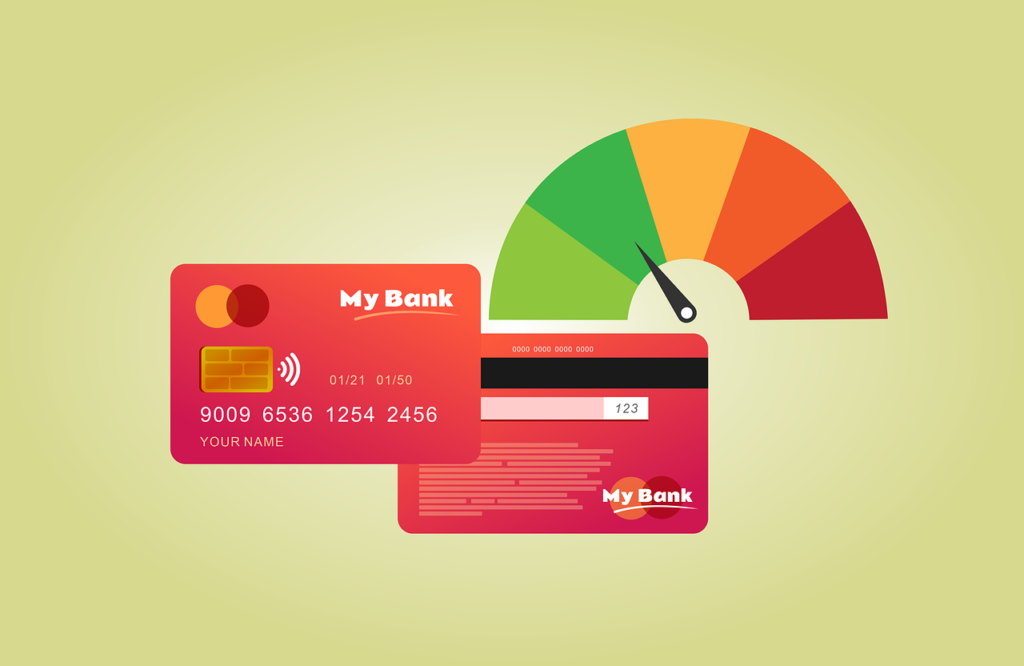Having bad credit can make it challenging to access credit cards and other financial opportunities. However, there are credit card options specifically designed for individuals with less-than-perfect credit. In this guide, we will explore credit cards for bad credit, their benefits, considerations when choosing one, and tips for responsible credit card usage to improve your creditworthiness.
Table of Contents
Understanding Credit Scores:
Before diving into credit cards for bad credit, let’s briefly discuss credit scores. Credit scores are numerical representations of your creditworthiness and are used by lenders to assess the risk of lending to you. FICO and VantageScore are the most commonly used credit scoring models. Credit scores range from 300 to 850. The higher the score, the better creditworthiness.

Credit Cards for Bad Credit:
Credit cards for bad credit are specifically designed for individuals with low credit scores or limited credit history. These cards can help you rebuild your credit by providing an opportunity to demonstrate responsible credit behavior.
Benefits of Credit Cards for Bad Credit:
1. Credit Rebuilding: Using a credit card for bad credit responsibly can help rebuild your credit history. By making timely payments and keeping balances low, you can gradually improve your credit score over time.
2. Access to Credit: Having a credit card can provide you with access to credit when other options may not be available. It allows you to make online purchases, reserve hotel rooms, and rent cars, among other things.
3. Potential Credit Limit Increases: Some credit cards for bad credit offer the possibility of credit limit increases over time as you demonstrate responsible credit management. This can provide more flexibility in managing your finances.
Considerations when Choosing a Credit Card for Bad Credit:
1. Fees: Credit cards for bad credit often come with fees such as an annual fee or application fee. It’s important to compare these fees among different cards and choose one that aligns with your budget and financial goals.
2. Interest Rates: Since credit cards for bad credit are designed for individuals with lower credit scores, they may come with higher interest rates. Be aware of the APR (Annual Percentage Rate) and consider your ability to pay off the balance in full each month to avoid accruing excessive interest charges.
3. Credit Reporting: Ensure that the credit card issuer reports your payment history to the major credit bureaus. This is essential to rebuilding your credit score. Regular, on-time payments will positively impact your credit history over time.
Tips for Responsible Credit Card Usage:
1. Make Timely Payments: Pay your credit card bill on or before the due date each month. Making late payments can damage your credit score. Consider setting up automatic payments or reminders to help you stay on track.
2. Keep Balances Low: Aim to keep your credit utilization ratio below 30%. This means keeping your credit card balances low relative to your credit limits. Having a high credit utilization can impact your credit score negatively. Paying off your balance in full each month is ideal, but if that’s not possible, make sure to keep the balances as low as you can.
3. Don’t Max Out Your Credit Limit: Maxing out your credit limit can signal to lenders that you are relying heavily on credit and may be a higher credit risk. Aim to use a small percentage of your available credit to demonstrate responsible credit usage.
4. Regularly Review Your Credit Report: Monitor your credit report for any errors or discrepancies. Dispute any inaccuracies promptly to ensure your credit history is accurately represented.
5. Avoid Applying for Multiple Credit Cards: Applying for numerous credit cards within a short period can negatively impact your credit score. Be selective and only apply for credit when necessary to minimize the impact on your creditworthiness.
Credit cards for bad credit can be valuable tools for rebuilding your credit history and improving your credit score over time. While they may come with certain fees and higher interest rates, responsible credit card usage can help you establish a positive credit profile. Make timely payments, keep balances low, and avoid maxing out your credit limit. Regularly reviewing your credit report and avoiding excessive credit applications are also important steps.
Remember, the goal is to demonstrate responsible credit behavior and gradually improve your creditworthiness. As your credit score improves, you may become eligible for better credit card offers with lower fees and interest rates. It’s a journey that requires patience and discipline, but the rewards are worth it.
Additionally, consider exploring secured credit cards as another option for building credit. Secured credit cards differ from other credit cards because they require a security deposit, which behaves as collateral. They are often easier to obtain for individuals with bad credit and can provide a path toward rebuilding your credit.
Finally, it’s crucial to educate yourself about personal finance and credit management. Understand how credit scores are calculated, learn about credit utilization, and familiarize yourself with the terms and conditions of the credit card you choose. By gaining knowledge and making informed decisions, you can set yourself up for long-term credit success.
In conclusion, credit cards for bad credit offer an opportunity to rebuild your credit history and improve your credit score. Use them responsibly, make timely payments, keep balances low, and avoid excessive fees. With time and responsible credit management, you can enhance your creditworthiness and open doors to better financial opportunities. Remember, improving your credit is a journey, so stay committed to building positive credit habits and watch your credit score steadily rise.